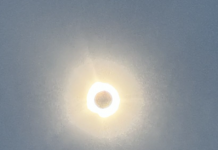
illustration by Lars Leetaru
Cross the patio of a Minneapolis cafe, I overheard the lilt of a woman speaking French. I instantly recognized it: Her voice had introduced me to the beastly subjunctive, French’s most notorious verb tense. And she had imparted the enigmatic wisdom of The Little Prince: “On ne voit bien qu’avec le cœur. L’essentiel est invisible pour les yeux.” (“It is only with the heart that one can see clearly. What is essential is invisible to the eye.”)
Hesitating, I approached her table. Would my former high school French teacher remember me? It was two decades ago that she taught me to say “N’importe quoi,” the French version of that essential teenage phrase, “Whatever.” (It was the ’90s, and Nirvana had made the expression indispensable.)
The petite and poised Madame Gunderson-Johnson—Hollywood could not invent a more perfect name for a Minnesotan French teacher—greeted my sister and me warmly by name. In her trademark cardigan and skirt, she appeared to have scarcely aged. “Madame,” as we’d called her, had remained one of the iconic celebrities of our youth, and like Oprah, Sting, Cher, and Madonna, she’d earned a one-word moniker.
We chatted in French, then in English. I felt strangely choked up. Without Madame, I might never have traveled to a tiny village in the Alps, where I grew homesick and turned green each time my host father passed around the dessert plate of pungent cheeses wrapped in tree bark and mold. (I didn’t know it then: You do not become fluent in a language until you have suffered a little in it.) Without Madame, my family would never have met the worldly, morose Olivier, our French exchange student, who saw fit to strut down the high school hallways smoking unfiltered cigarettes—and put my mother on a first-name basis with the principal. Without Madame, I would never have experienced the peculiar thrill of getting stuck in Geneva during a train strike as a teenager, reliant on the kindness of strangers who spoke a once-mysterious language I now understood.
And so it struck me: The adults we encounter as children are a matter of blind luck. Just as we don’t choose our parents, we don’t choose our teachers, and yet we spend hours, months, years with them.
Seeing Madame in the cafe, I grasped, for the first time, that she was not simply an invincible titan of knowledge, but also a mortal human being. Madame, for example, was unlikely to understand her effect on my life, precisely because I had never told her.
So, I told her. While living in a village where no one spoke English, how I was singularly reliant on what she had taught me: how to give a compliment, how to say you’re sorry, how to explain that you’re lost. How my little boy could now speak French because she had taught me well enough to, in turn, teach him.
Blind luck, ruthless as a spinning roulette wheel, meant that we’d landed in the class of a teacher who, among other gifts, possessed the generosity to drive downtown at dawn to pick up authentic croissants and pain au chocolat from the beloved, now-shuttered New French Cafe for her students each semester. We’d nibble them during torrid Gérard Depardieu films that she censored in a rather inspired, DIY fashion, standing in front of the TV to block out the naughty bits. Most of us hadn’t been to France yet, and some of us would never go, but she made sure we could taste, and correctly pronounce, at least some of its enchantments in our lives to come.






